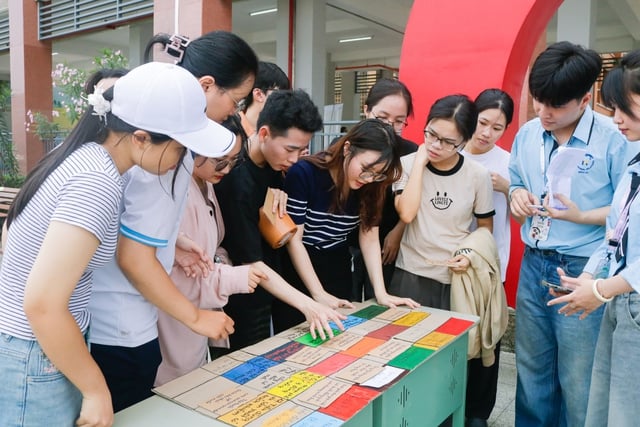
Students learn about a green living activity
PHOTO: NVCC
There are more and more initiatives and products that help promote green living.
As a Vietnamese delegate who has participated in international exchange programs on the topic of environment and sustainable development, Ms. Nguyen Minh Huyen (HCMC) shared that the practice of green living among young people is now very different from 2-3 years ago. For example, when asked "Are you living green?", instead of being confused because they do not know what the standards of green living are, now young people measure their carbon footprint (the total amount of greenhouse gases that an individual emits through daily activities, transportation, etc. - PV) through free tools.
Or when choosing environmentally friendly products, instead of trusting the advertisements, young people will now find out clearly whether the business, from the time of collecting raw materials to the completion of the product, is truly "green" or just a greenwashing trick (greenwashing, that is, spreading false information to show that they are responsible for the environment when in fact they are not - PV). "You have better reception, evaluation and reflection," said Ms. Huyen.
Looking at the bigger picture, Ms. Huyen said that Vietnam has more and more initiatives and products that help promote green lifestyles and sustainable development. In addition, Vietnam is also one of the Asian countries with high determination towards Net Zero (net zero emissions), with a commitment to reduce 43.5% of emissions by 2023, achieving Net Zero by 2050. "We are in favorable conditions to promote green transformation," Ms. Huyen concluded.
However, it is necessary to recognize the fact that in developing countries like Vietnam, people are using a lot of convenient, disposable products that are certainly not sustainable. Compared to a developed country like Japan, although they also consume a lot of disposable plastic, they themselves have a process that requires all parties to participate, such as how to clean before disposal, how to recycle..., according to the female delegate.
"This is a bottleneck that Southeast Asian countries have not been able to overcome," Ms. Huyen commented. "Many young people still unconsciously support greenwashing by consuming products that are considered sustainable but are not, such as cloth bags or paper bags because these products consume a large amount of electricity and water."
Therefore, the key words that the female delegate wants to tell students are "consumer moderately", try to extend the life cycle of personal items and limit single use. Because if you continuously discharge them into the environment, it will not only put pressure on natural resources such as water but also increase the amount of raw materials used to process them.
Sending a message to students, Ms. Huyen advises them to find motivation to maintain a green lifestyle. It could be the desire to access more opportunities to study abroad and exchange internationally, because up to 50% of current exchange programs are said to be on the topic of sustainable development; it could also be the desire to change the appearance of their hometown... "Start with a small action like choosing an item you often use once, such as a coffee cup, and find an alternative for long-term use. Make green living a habit, something programmed into you...", Ms. Huyen shared.
Green living extracurricular activities
Not only practicing a green lifestyle, young people, especially students, also contribute to spreading the spirit of sustainable development to their peers. A typical example is the University of Social Sciences and Humanities (Ho Chi Minh City National University), which initiated the "Green University" program in 2018 in 3 phases expected to last until 2030.
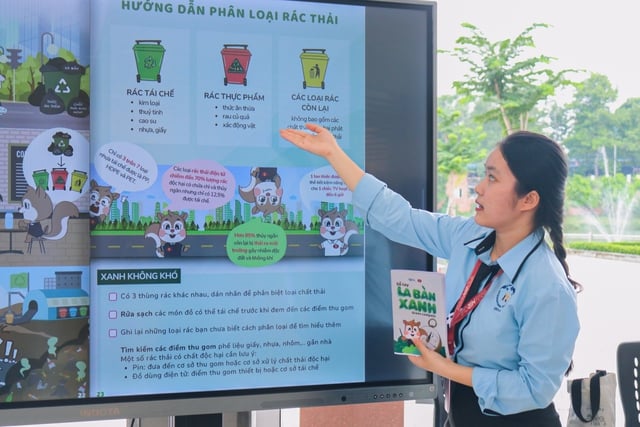
Green Compass Handbook published by University of Social Sciences and Humanities (Ho Chi Minh City National University)
PHOTO: NGOC LONG
Most recently, on June 30, the school published a sustainable lifestyle practice handbook called Green Compass to help students learn in detail the core knowledge of sustainable development and green lifestyle; build green habits from small actions while still a student; learn about environmental protection organizations and activities; as well as consult useful advice from teachers.
The special feature of this handbook is that it was made entirely by students under the guidance of an advisory board consisting of school leaders and industry experts. And from the information in the handbook, Ho Chi Minh City University of Social Sciences and Humanities organized the first green living festival with the theme "Green Weaving", attracting a large number of young people to participate in a series of activities from morning to afternoon.
Nguyen Minh Thu, a second-year student of the Faculty of International Relations at the University of Social Sciences and Humanities, Ho Chi Minh City, and Head of the festival's organizing committee, shared that the activities were planned and organized by the students in a rush of about 3 weeks. The name "Green Weaving" both means connecting and spreading a green lifestyle, and also refers to spreading sustainable fashion when fast fashion - a trend that is harmful to the environment - is extremely popular with young people.
"Weaving hope, greening the future, that is the message we want to convey," Thu said.
To realize this wish, the female student said that the festival is structured with 3 main activities: the green living exhibition "Weaving the Good Land", running the "Weaving Green Feet" station, and the talk show "Weaving Unfinished" about sustainable fashion. In each main activity, there are also smaller activities so that participants not only have the opportunity to observe and listen but also directly interact to understand and deeply understand green lifestyle and sustainable development, Thu said.
A notable point when organizing the festival, according to Thu, is that the students did not bring any plastic items. In addition, the participants also listened attentively to the speakers and almost no one used mobile phones. These signs partly show that young people are really interested in green living and not just seeing it as a slogan on paper.
"Not only you guys, but I myself have also changed compared to before. Now I limit the use of plastic products as much as possible, and this action also spreads to the friends around me," Thu said.
Source: https://thanhnien.vn/bang-cach-nao-luu-y-gi-de-bat-dau-song-xanh-185250630235336841.htm



![[Photo] Solemn reception to celebrate the 80th anniversary of the National Day of the Socialist Republic of Vietnam](https://vphoto.vietnam.vn/thumb/1200x675/vietnam/resource/IMAGE/2025/9/1/e86d78396477453cbfab255db1e2bdb1)
![[Photo] Celebration of the 65th Anniversary of the Establishment of Diplomatic Relations between Vietnam and Cuba](https://vphoto.vietnam.vn/thumb/1200x675/vietnam/resource/IMAGE/2025/9/1/0ed159f3f19344e497ab652956b15cca)
![[Photo] Chu Dau Ceramics – Proud of Vietnamese identity at Exhibition A80](https://vphoto.vietnam.vn/thumb/1200x675/vietnam/resource/IMAGE/2025/9/1/c62ab2fc69664657b3f03bea2c59c90e)
![[Photo] General Secretary receives heads of political party delegations from countries attending the 80th anniversary of our country's National Day](https://vphoto.vietnam.vn/thumb/1200x675/vietnam/resource/IMAGE/2025/9/1/ad0cb56026294afcae85480562c2e790)
![[Photo] National Assembly Chairman Tran Thanh Man receives Cambodian Senate President Hun Sen](https://vphoto.vietnam.vn/thumb/1200x675/vietnam/resource/IMAGE/2025/9/1/7a90c9b1c1484321bbb0fadceef6559b)
![[Photo] People eagerly wait all night for the parade on the morning of September 2](https://vphoto.vietnam.vn/thumb/1200x675/vietnam/resource/IMAGE/2025/9/1/0cf8423e8a4e454094f0bace35c9a392)
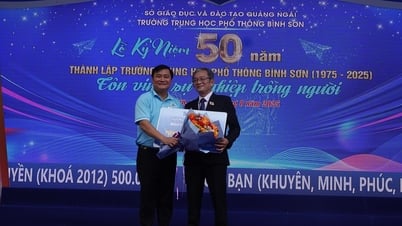

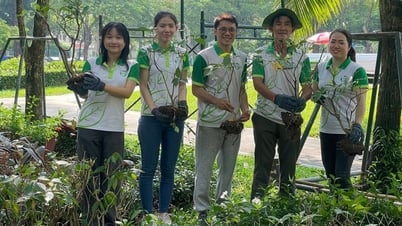
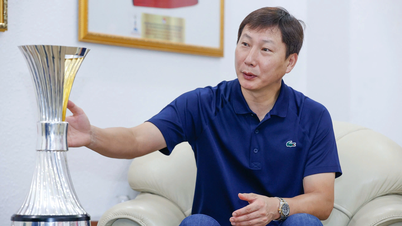
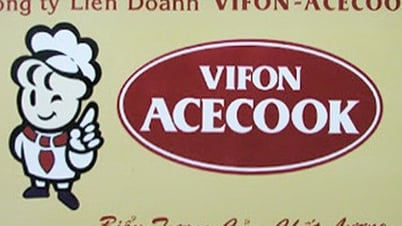







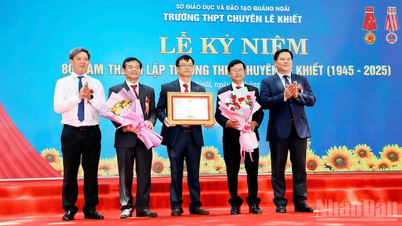














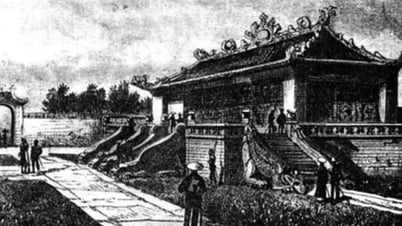
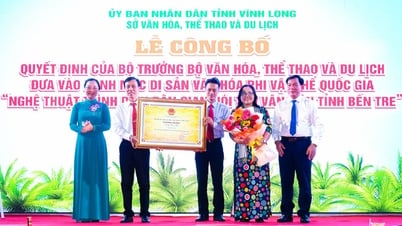

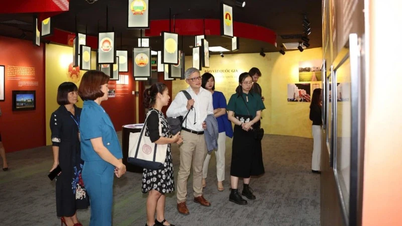






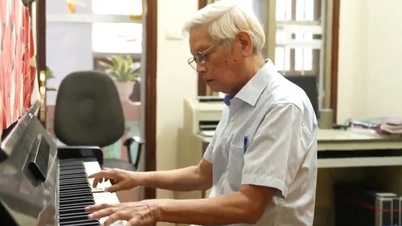
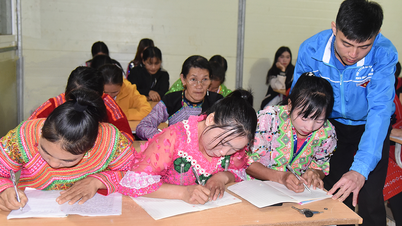


























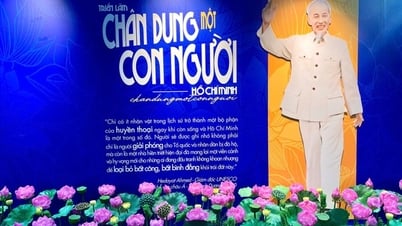












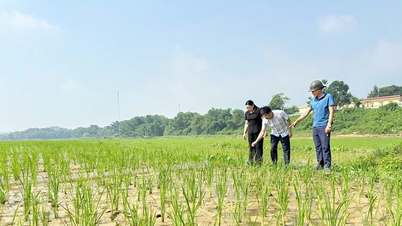

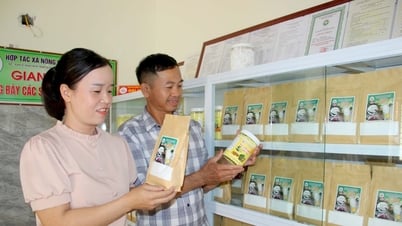

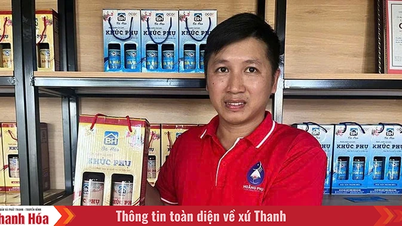


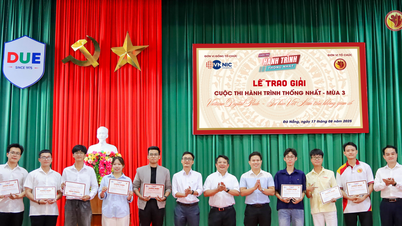

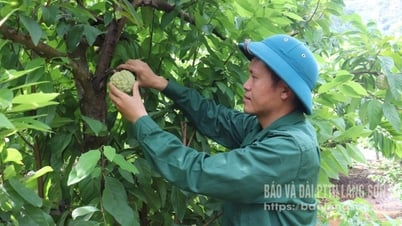



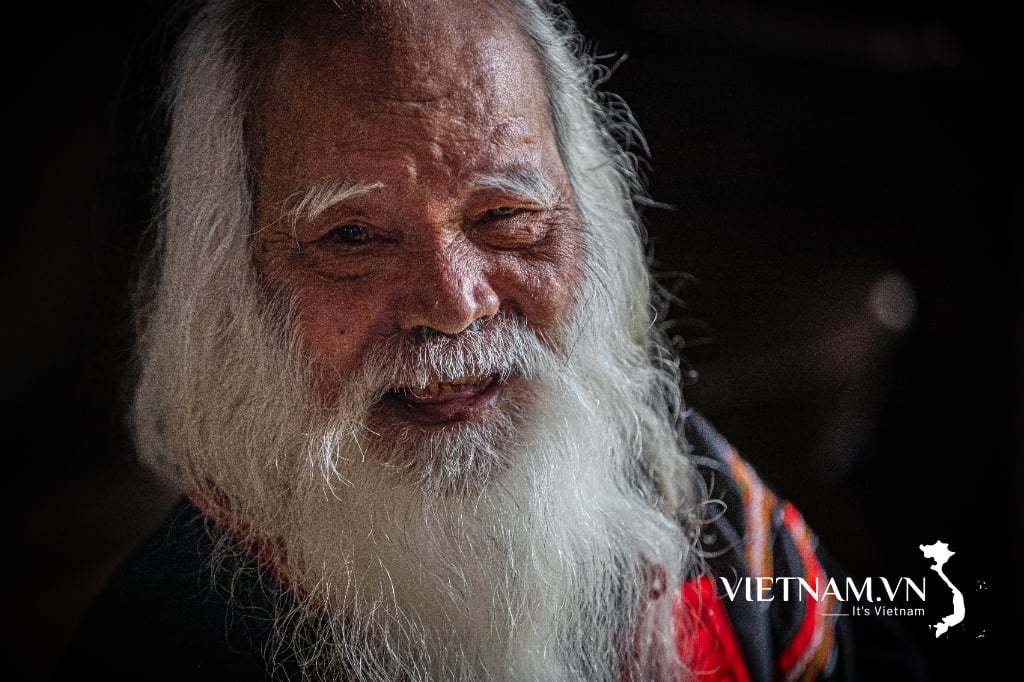

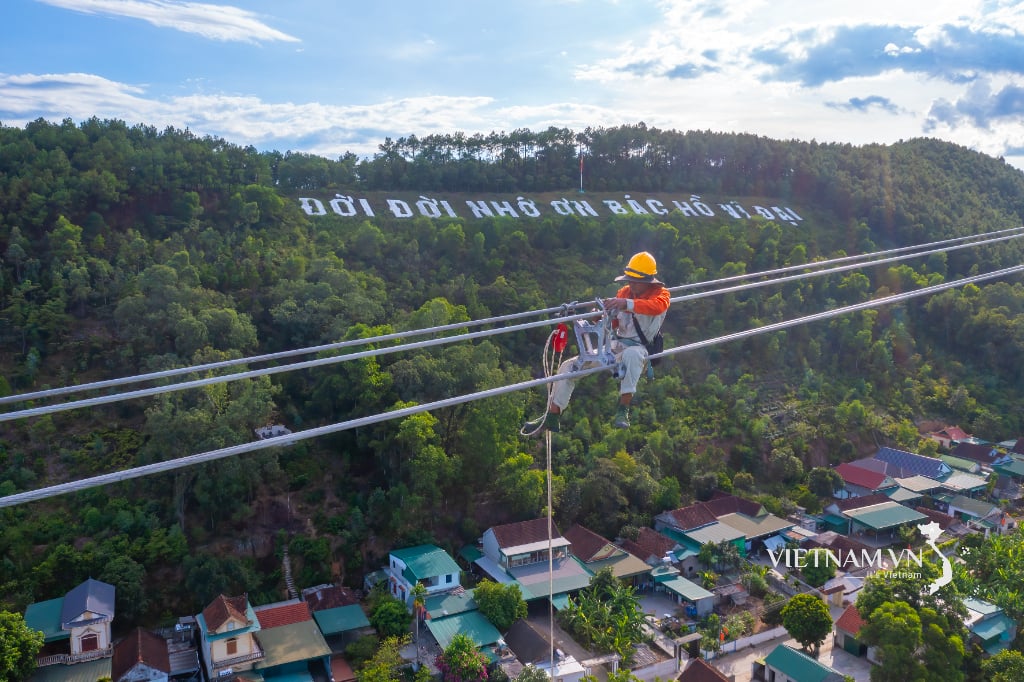
Comment (0)